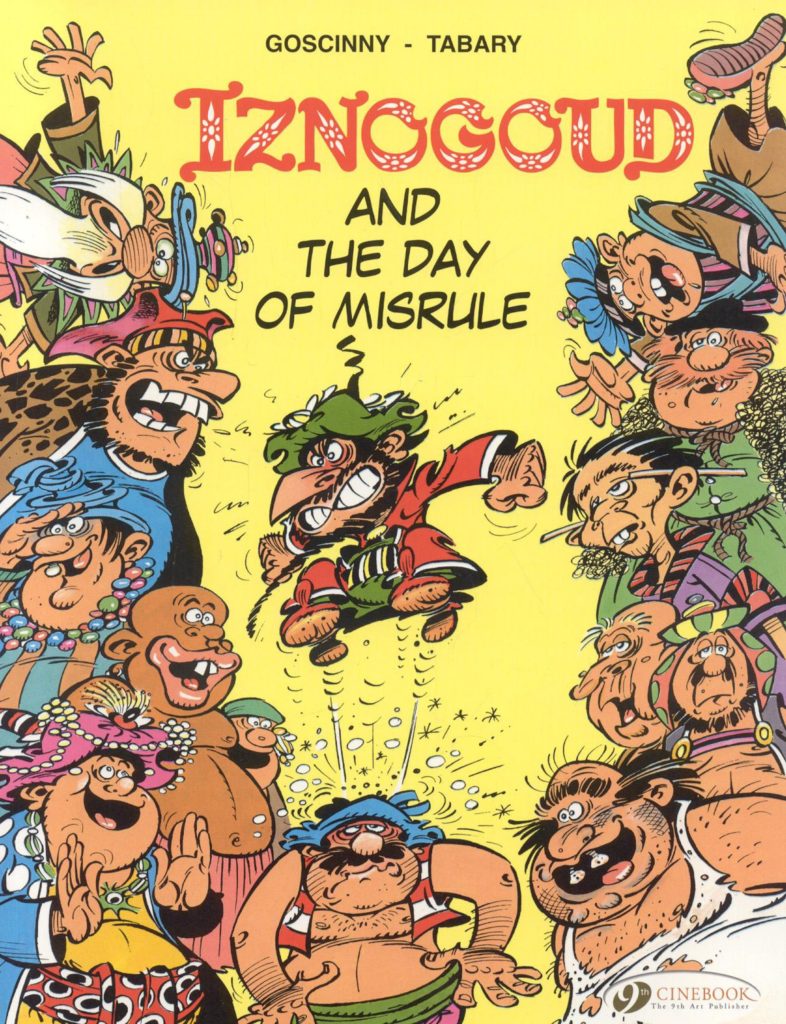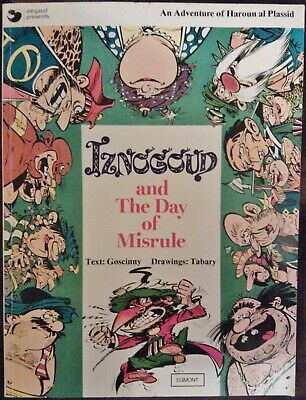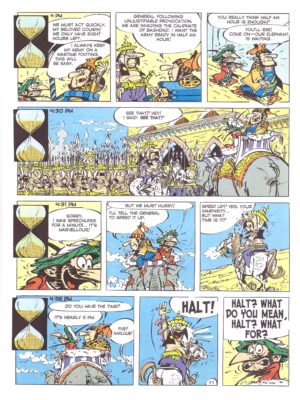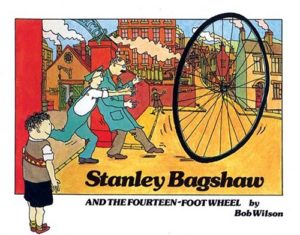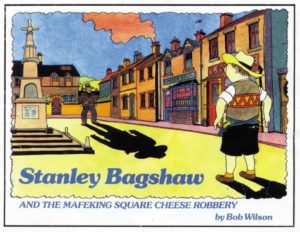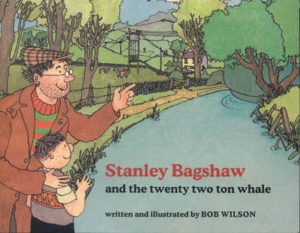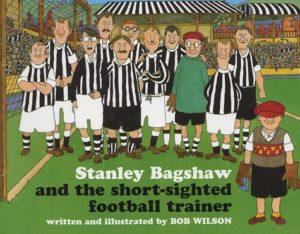Review by Andrew Littlefield
Cinebook’s third album of Iznogoud stories was first issued in English by Egmont/Methuen in 1978, and Cinebook have retained the translation by the lauded Asterix team of Anthea Bell and Derek Hockridge. Once again, we return to the city of old Baghdad, where duplicitous Grand Vizier Iznogoud eternally seeks to become “Caliph instead of the Caliph” with the aid of his loyal right-hand man Wa’at Alahf.
The title story runs to twenty pages, significantly longer than the more usual eight-page Iznogoud strip, giving Asterix and Lucky Luke writer René Goscinny a bit more space for his trademark puns and narrative digressions (here an unscheduled diversion to ancient Japan). On the Day of Misrule, everything is topsy-turvy – masters become slaves, judges become prisoners and Grand Viziers can become Caliph for a day. Iznogoud naturally sees this as an opportunity to depose the reigning Haroun El Poussah once and for all, and frantically plots and schemes to achieve that end. Goscinny uses the recurring image of grains of sand trickling away in a timer to highlight our hapless anti-hero’s 24-hour deadline, and in fact the Iznogoud stories quite often have the feeling of a bad anxiety dream, where a desired goal or object is forever, frustratingly, just out of each. Jean Tabary’s energetic imagery, full of flop sweat and panicky, angry faces, catches this overheated farcical atmosphere to perfection.
The other stories collected in this album are ‘The Challenge’, where Iznogoud discovers an ancient bylaw allowing anyone to challenge the ruling Caliph (Wa’at Alahf sagely tells him, “Oh, drop it, master! You know perfectly well you always lose in the end!”); ‘The Labyrinth’ (Iznogoud hopes to trap the Caliph in a maze that’s impossible to escape); and ‘Elections in the Caliphate’, which affords Goscinny the opportunity to take aim at political corruption and in-fighting. The more things change…
